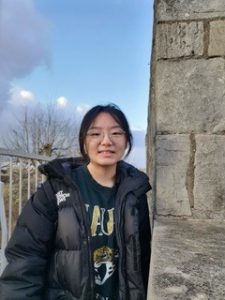
Ruizi Yan – University of Oxford
Ruizi Yan grew up in Luzhou and began her undergraduate study in Computing Mathematics at City University of Hong Kong before transferring to the University of Edinburgh to pursue a joint bachelor’s degree in Mathematics and Statistics. She later completed her MSc in Statistical Science at St Peter’s College, Oxford. During her undergraduate studies, Ruizi focused on sequential experimental designs, Gaussian processes and nonparametric Bayesian models particularly Dirichlet Processes and Polya Trees which formed the basis of her dissertation.
Ruizi has gained practical experience through internships in data engineering and machine learning, applying models to real-world problems such as document analysis and financial risk assessment.
During her master’s studies, she developed an interest in graphical models and causal inference. At StatML, Ruizi aims to develop statistical methods for simulating a wide range of causal models, while remaining open to exploring new areas.
Outside of research, Ruizi enjoys sports, traveling, and is passionate about greenery and gardening.
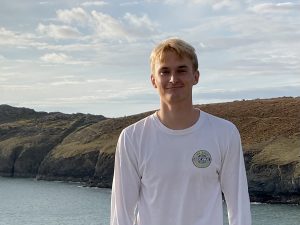
Jamie Reason – University of Oxford
Jamie completed an integrated masters in Mathematics at the University of Durham, specialising in Statistics in his final year. His dissertation explored Bayesian emulation with Gaussian processes in a low-data regime. In particular, he generalised existing methods of introducing inductive bias with the TENSE framework. During the programme, Jamie is interested in working on robust uncertainty quantification, causal inference and Bayesian methods for deep learning whilst broadening his knowledge of statistics and machine learning. Whilst primarily interested in developing methodology, he is also interested in applications of machine learning in medicine, where having safe and reliable models is crucial. In his spare time, Jamie is a keen surfer and enjoys many outdoor activities.
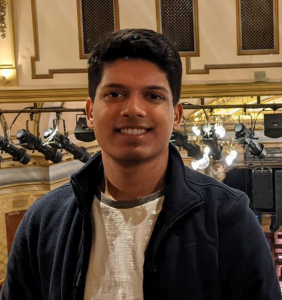
Deepro Choudhury – University of Oxford
Deepro is from Kent and studied Mathematics and Computer Science at Imperial College London, where he cultivated an interest in pure mathematics. He undertook an undergraduate research project on the representation growth of Lie algebras, and a dissertation involving formal theorem proving in Lean. Following this, he pursued a master’s degree at the University of Cambridge, delving into several areas of machine learning. His dissertation focused on applying machine learning methods to formal theorem proving. At Cambridge, he also engaged in research projects in geometric deep learning and understanding the training dynamics of deep neural networks.
At StatML, Deepro hopes to use statistics and information theory to probe the internals of deep learning models further. He enjoys quizzing, playing guitar, classical music, cricket and board games.

Zhuoyue Huang – University of Oxford
Zhuoyue completed her Bachelor’s degree in Mathematics at Imperial College London, where her thesis on signature inversion sparked her passion for the intersection of mathematics and machine learning. Afterward, she pursued the Part III at the University of Cambridge. Her research interests are centered around statistical machine learning, with a focus on Bayesian nonparametrics, causal inference, and probabilistic modeling. She is intrigued by the Bayesian approach for its systematic handling of uncertainty via the posterior, enabling reliable statistical conclusions. Zhuoyue looks forward to her upcoming research, beginning with a mini-project on Bayesian inference for heterogeneous treatment effects under Prof. Rousseau and Dr. Ray. Outside academia, she enjoys playing board games, with The Castles of Burgundy being her favorite.
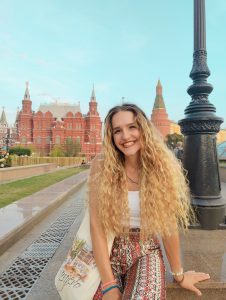
Bogdana Jelic – University of Oxford
I am a first year StatML Student, coming from Serbia. I am joining from a few years spent working in industry, mainly in finance, in exotic products trading. Prior to that, I have completed my masters in Probability and Statistics from the University of Cambridge. In my free time I enjoy mountaineering, hiking in the mountains, climbing and being outdoors. I will be focusing on theoretical and empirical statistical research with applications in healthcare analytics and dynamic decision making.
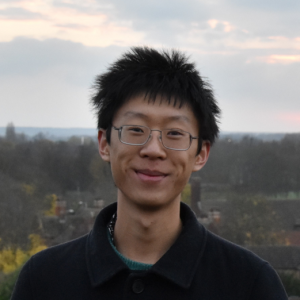
Alexander Yan – University of Oxford
Alex, from London, studied mathematics at the University of Cambridge for his undergraduate and master’s degrees. At Cambridge, he specialised in statistics and undertook research projects in statistical neuroimaging and image segmentation for microscopy. He also completed a data analysis internship in the Cabinet Office.
At StatML, Alex intends to investigate applications of statistics in infectious disease epidemiology. He is also excited for the opportunity to learn more about topics in machine learning. In his spare time, he enjoys playing board games and playing and accompanying on the piano.
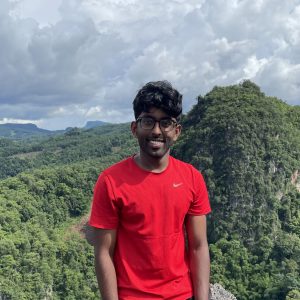
Adhithya Saravanan – University of Oxford
Adhi grew up in West Yorkshire and studied Engineering at the University of Cambridge, specializing in Information and Computer Engineering. During his degree, he interned at startups working on applied computer vision and deep learning, and at Caltech, where he was funded by the Summer Undergraduate Research Fellowship to study the fairness, synthetic data, and code generation properties of foundation models. In his Master’s, Adhi focused on probabilistic machine learning and deep learning, and for his thesis, he explored the certification of Bayesian Neural Networks, integrating concepts from formal verification.
At StatML, he is eager to delve into probabilistic approaches and generative modelling to address key challenges in large models, such as data efficiency, uncertainty quantification, and model robustness. He is particularly drawn to AI4Science, with a focus on biological applications. Outside of his research, Adhi enjoys playing cricket, weightlifting, building (/programming) things, and traveling.
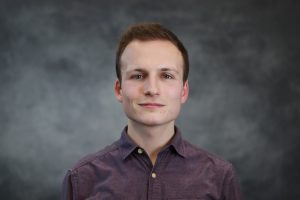
Isaac Hayden – Imperial College London
Isaac completed an integrated Master’s in Mathematics at Durham University in 2023. While specialising in geometry and functional analysis, he also explored the use of neural networks to solve differential equations in his dissertation project. Before joining StatML, he worked as a pharmacometric data scientist for a HealthTech start-up delivering precision drug dosing. There he developed nonlinear mixed-effects models to describe drug exposure and optimise doses in special patient populations, while investigating further extensions using machine learning. On the StatML programme, he is interested in exploring the integration of machine learning models like Gaussian processes and variational autoencoders into classical statistical models for various healthcare applications. In his spare time, he enjoys climbing, running and learning languages.
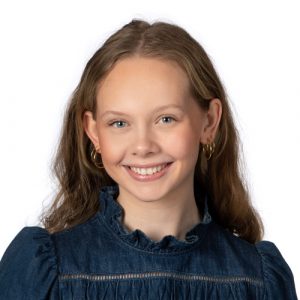 Inga Huld Armann – Imperial College London
Inga Huld Armann – Imperial College London
Inga Huld has completed a BSc in Applied Mathematics at the University of Iceland, including a semester abroad at the University of California, Berkeley, and an MSc in Statistics at Imperial College London.
Between her undergraduate and postgraduate studies, she joined the Icelandic Ministry for Education and Children as a part of their analytics team, combining her interest in education and welfare with her skills in statistics and machine learning.
During her studies and work she developed an interest in Bayesian methods and computational statistics. As a StatML student, she will explore and develop methods for cancer diagnosis and related fields in collaboration with Cancer Research UK.
Alongside work and studies she has contributed to youth, wellbeing and educational matters at a domestic level in Iceland and as part of the country’s delegation to the United Nations. Her hobbies include knitting, running and CrossFit.
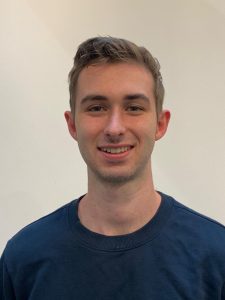
James Cuin – Imperial College London
James Cuin is joining the StatML programme as an aspiring researcher in the field of machine learning, particularly in applications intersecting quantitative finance. Although already possessing industry experience, developing open-source LLM applications for capital markets, he pursued a MSc in Statistics at Imperial College London aiming to deepen his expertise in model interpretability and optimisation amid an increasingly data-driven world. Following on from his thesis, concerning change point detection in extremal graphical models, he will be focusing on relevant optimisation problems, high-dimensional statistics, as well as more computationally focused projects. Originally from Surrey, James enjoys playing football, tennis, and is particularly looking forward to collaborating with such a diverse cohort.
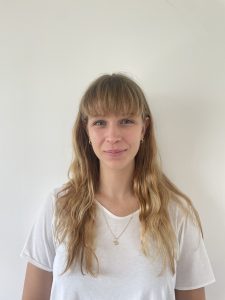 Joanna Marks – Imperial College London
Joanna Marks – Imperial College London
Joanna grew up in Poland and studied Mathematics at the University of Warwick before earning a scholarship to pursue an MSc in Statistics at Imperial College London. During her studies, she completed research internships at Imperial, Oxford, and Warwick, where she explored the application of statistical tools to sports and cancer development modeling. She developed her sports modeling skills further by joining a quant research team in a sports betting company. At StatML, she aims to deepen her understanding of theoretical foundations of ML algorithms and explore spatial point processes. In her free time, Joanna enjoys a wide range of sports, including running, CrossFit, weightlifting, and squash. She is a devoted volleyball and tennis fan, loves to travel, hike and read.
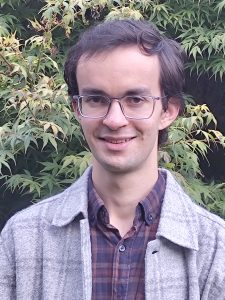
Peter Hyland – Imperial College London
I am a PhD student in the mathematics department of Imperial College London. With a background in mathematics from the University of Warwick, I am particularly interested in generative models and reinforcement learning. My current research is investigating how interacting particle algorithms can be applied to these models. I am building on my initial focus on pure mathematics by learning computational tools like PyTorch and JAX. I especially value a sense of novelty in research environments, contributing to research that people can use safely to solve influential problems. Outside of work, I enjoy learning about plenty of different topics, currently being intrigued by psychology and finding new ways to break my Linux setup before fixing it again.

Michael Scoones – Imperial College London
Michael was raised in Middlesbrough, UK, before pursuing his undergraduate degree in Mathematics at the University of Cambridge, where he focused on analysis and algebra. He developed a strong interest in geometry and number theory while completing his first master’s degree in Mathematics at King’s College London, producing a dissertation on additive number theory and Waring-like problems. After spending some time working as a software engineer for an AI cybersecurity company, Michael earned a second master’s degree in Machine Learning from UCL. His projects spanned reinforcement learning, Bayesian neural networks, and statistical learning theory, culminating in a dissertation on adaptive kernel methods in causal inference.
During the programme, Michael will collaborate with his advisors to explore sequential decision-making (bandit algorithms) with applications in healthcare, clinical trials, and recommender systems. His broader research interests include kernel methods and Bayesian deep learning. In his free time, Michael enjoys cooking, swimming, rock climbing, and discovering new spots around London

Rafael Athanasiades – Imperial College London
Rafael, originally from Cyprus, pursued his BSc in Mathematics at the University of Bristol, where he engaged in theoretical research on Interacting Particle Systems within Probability Theory. Seeking to explore more applied fields, he pursued an MSc in Statistics (Data Science) at Imperial College London. For his master’s project, Rafael employed Inverse Reinforcement Learning on Pedestrian Data to infer reward functions driving pedestrian movement. Then using the inferred reward functions trained Reinforcement Learning models to simulate pedestrian behavior in single-agent environments.
In his free time, Rafael enjoys traveling, playing guitar and singing, going to the gym, and loves animals, especially dogs.
At StatML, he aims to explore new areas of statistics, including his PhD focus on inverse problems in nuclear fusion. He also, plans to investigate how statistical methodologies are utilized across diverse fields such as finance, healthcare, environmental science, and technology.
 Lucas Siu – Imperial College London
Lucas Siu – Imperial College London
I studied mathematics at Imperial College London where I also obtained my integrated masters. I became interested in the development of machine learning techniques from a statistical perspective during a research project at LSE, where I looked at implementing latent variable models and understanding complexities that arise when estimating parameters whose true value lies at the boundary of a parameter space. My master’s thesis focused on using Gaussian Process approximations to estimate smooth contact intensities, with an overall aim to better understand HIV transmission patterns in Uganda. Moving forward, I am excited to broaden my knowledge with the wide range of modules at the program and look forward to my first mini-project looking at leveraging genetic diversity to enhance genomic predictions. In my spare time, I enjoy watching and playing sport and reading.
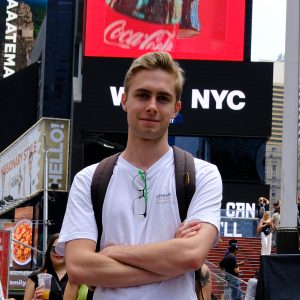 Daniil Shmelev – Imperial College London
Daniil Shmelev – Imperial College London
Daniil studied mathematics at the University of Cambridge for his undergraduate degree, before completing a master’s degree in Mathematics and Finance at Imperial College London. During his master’s degree, Daniil developed an interest in time-series analysis and the theory of Rough Paths, which inspired his master’s thesis on the efficient extraction of path signature coefficients. Having successfully completed an internship with Deutsche Bank following his master’s degree, Daniil is excited to continue his research at StatML, focusing on signature-enhanced machine learning techniques for time-series based problems. In his free time, Daniil enjoys playing badminton and snooker, as well as playing the piano and guitar.